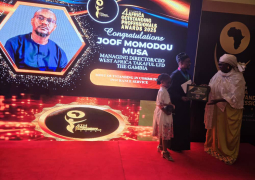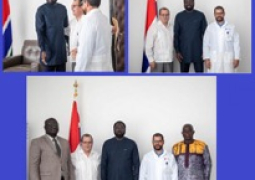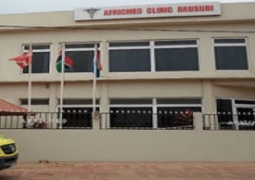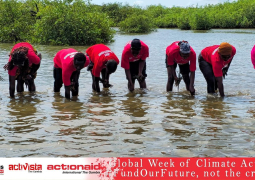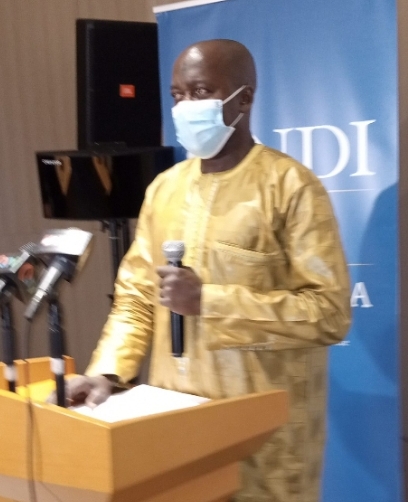
Mr. Nyassi made the appeal during a recent press conference held at the Sir Dawda Kairaba Conference Center by his Committee in partnership with National Democratic Institute and UNDP.
The Inter-Party Committee IPC) was established by political parties in The Gambia as a forum for inter-party dialogue and co-operation to promote peaceful political dialogues, credible electoral processes, foster national unity and consolidate democracy and peace in the country.
Since its formation, IPC has facilitated constructive conversations between political actors on reform issues and helped in diffusing political tensions, particularly during contentious electoral processes and reform initiatives. In line with its mandate of promoting inclusive politics, IPC has continued to advocate for more women and youth representation in elected office and political party leadership.
During their June 2021 quarterly breakfast meeting in Masankoko, Lower River Region, political party leaders committed to elevate more women to party leadership positions and nominate more women to vie for elective seats, thereby contributing to the efforts of The Gambia achieving at least 30% gender parity in National Assembly and local councils. Currently, only six (10%) of the 58 members of the Gambian National Assembly are women and at the local level, only eight of 120 (8%) councilors are women.
The IPC also established the Women Branch (WOBIPC) to further promote women participation in national and local politics while a gender policy for political parties is being developed to institutionalise, increase, and monitor parties’ commitments to gender equality in politics. Initiatives to also increase participation of youth in politics have been a priority as demonstrated by the formation of the Youth Branch of IPC (YOBIPC), formulation of IPC’s inclusivity and diversity framework, among other interventions targeting the young people.
Mr Nyassi appealed to Gambian voters (57% women, 58% youth) to consider voting for women, young people and persons with disabilities who will be nominated by political parties or vying as independent candidates.
He stated that the inclusion of women, youth and persons with disabilities in decision making is a fundamental human right, an issue of social justice, especially in a country such as The Gambia where the largest population and registered voters are women and young people.
He also appealed to Gambians to maintain peace during the campaign period and safeguard their hard-earned democracy by embracing the progressive options of dialogue, political tolerance and peace.


